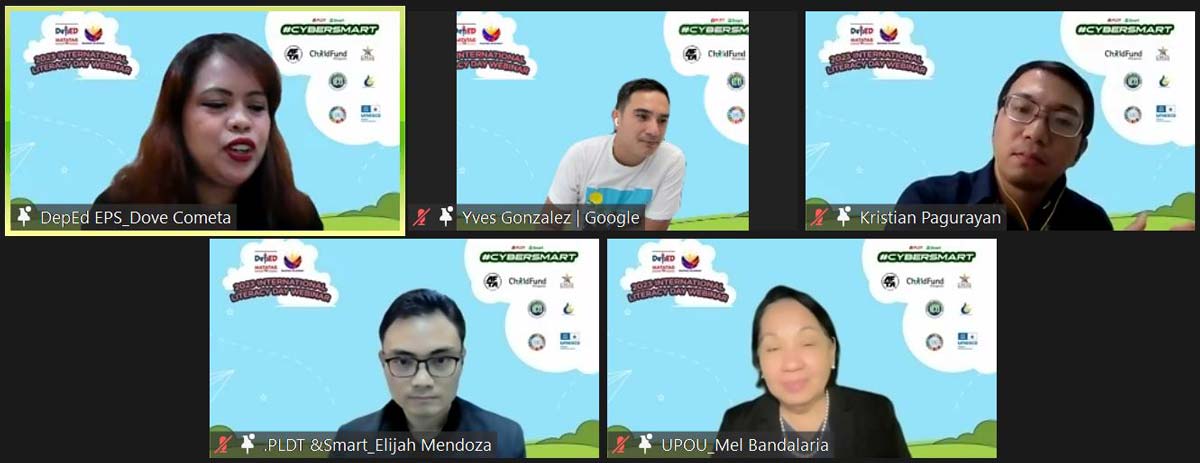PLDT and Smart launched a cybersecurity boot camp for teachers in celebration of International Literacy Day. The boot camp aims to equip teachers with the skills and knowledge to protect themselves and their students from online threats and to create safe and secure digital learning platforms.
The boot camp is part of CyberSmart, the PLDT Group’s premier cyber safety awareness campaign that has reached over 1.5 million Filipinos since 2016. CyberSmart provides online users with information and practical tips on how to stay safe on- and offline.
“At PLDT and Smart, cybersecurity is everybody’s job. We hope that through CyberSmart—you embrace a culture of cybersecurity. Together, we can make the internet safer for all,” said Cathy Yang, FVP and Group Head of Corporate Communications at PLDT and Smart.
The boot camp covered topics such as phishing, text scams, social engineering, and responsible social media use. The speakers included experts from PLDT and Smart’s Cyber Security Operations Group, Google Philippines, and UP Open University.

One of the speakers, Elijah Mendoza, Senior Manager for Digital Communications at Smart, warned teachers about the dangers of opening suspicious emails and links that may contain malware or ransomware. He also advised them to be wary of strangers who may try to trick them into giving personal information or one-time passwords (OTPs) over the phone or online. “Remember, banks never ask for OTPs,” he said.
Another speaker, Khristian Pagurayan, Awareness, Training, and User Adoption Supervisor of PLDT and Smart’s Cyber Security Operations Group, taught teachers how to spot text scams that may offer fake prizes or money in exchange for personal details or fees. He said that text scams usually come from unknown senders, have too-good-to-be-true offers, and urge victims to act quickly by clicking a link that leads to a phishing domain.
Yves Gonzalez, Head of Government Affairs and Public Policy at Google Philippines, explained how hackers use visual confusion to steal user data. He said that hackers copy the login page of a legitimate website on a malicious domain to lure users into thinking that they’re logging in to a secure domain. He advised teachers to always check the URL of the website they’re visiting and to use strong passwords and two-factor authentication.
Dr. Melinda dela Pena Bandalaria, Chancellor of UP Open University, reminded participants to use social media responsibly. She said that social media has a wide reach and can influence public opinion. She stressed the importance of verifying information before sharing them and avoiding spreading misinformation or fake news.
The cybersecurity boot camp is one of the many initiatives of PLDT and Smart to support the Department of Education in improving the country’s literacy through innovative and technology-enabled programs. The PLDT Group has been a long-time partner of DepEd in providing connectivity solutions, digital tools, and learning resources for teachers and students.
The efforts of PLDT and Smart to share CyberSmart tips are also fundamental to the PLDT Group’s much broader program to elevate the quality of customer experience by protecting them from threats and cyber-attacks.
PLDT and Smart initiatives support the government’s Go Digital Pilipinas Movement and the Digital Infrastructure pillar of the Private Sector Advisory Council (PSAC), which seek to elevate the lives of Filipinos through digital services.




